QC101 Quantum Computing & Intro to Quantum Machine Learning
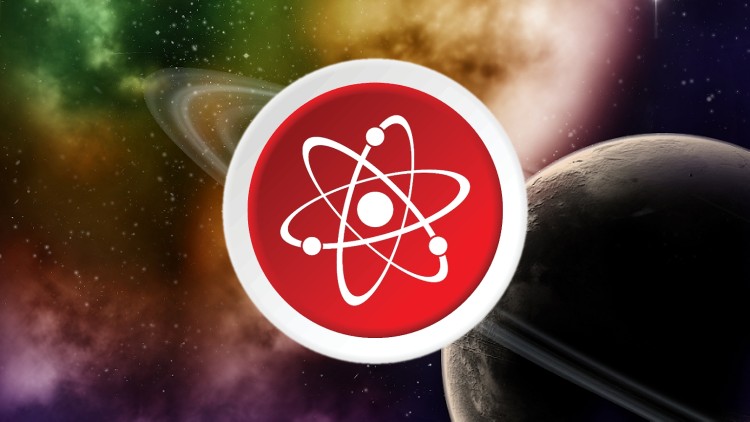
Why take this course?
🎉 [Math-Based Introduction to Quantum Computing, Cryptography & Quantum Machine Learning] 🌐
Welcome to QC101!
Quantum Computing is set to reshape the software industry with its exponential speed and capability. It's not just a niche technology; it's a transformative force that can tackle complex problems from simulating biological processes to cracking encrypted data. Tech giants like Google, Intel, IBM, and Microsoft are heavily investing in quantum computing, and the future looks bright for those who master this field now.
🚀 Did You Know? A 64-bit quantum computer can process an astronomical amount of data—36 billion billion bytes—in each step of computation. Compare that to the modest 8 bytes your home computer handles! This course will help you understand and harness this power.
Prerequisites:
- Enjoy Physics and Math: You need a solid foundation in high-school level Math and Physics. These subjects are the gateway to understanding quantum computing. While we'll cover everything else here, Quantum Physics is notoriously complex, and you may need to pause and replay lessons to grasp the concepts.
Quantum Machine Learning: The potential of quantum computing is most evident in its application to machine learning and artificial intelligence. Quantum algorithms could revolutionize the way we approach these fields by providing significant speedups and enhancing accuracy. With Qiskit, you can leverage quantum machine learning almost as effortlessly as traditional ML.
🌟 Quantum Machine Learning Can Impact Your Daily Life: Even if quantum computers remain out of reach for most, their algorithms can be run on classical computers to provide benefits in everyday applications.
Course Outline:
- Basic Math Refresher: We'll revisit linear algebra, probability, Boolean algebra, and complex numbers to ensure a solid mathematical foundation.
- Quantum Physics Made Simple: Using polarized light as an everyday analogy, we'll demystify the principles of quantum physics.
- Quantum Cryptography: Learn about the BB84 quantum protocol for secure key sharing—quantum cryptography's killer feature.
- Understanding Quantum Gates: Explore the building blocks of quantum programs through quantum superposition and entanglement.
- Hands-On with Q# & Qiskit: No prior knowledge of Python is required as we introduce the necessary programming concepts for both Microsoft Q# (QSharp) and IBM Qiskit.
- Real-World Applications: Implement the BB84 protocol, Shor's algorithm, and a Quantum Support Vector Machine (SVM).
- Classical Machine Learning & Deep Learning Introduction: A clear and concise guide to understand classical machine learning before diving into quantum machine learning.
- Quantum Machine Learning Implementation: Train a Quantum SVM on real-world data and learn to make predictions with this powerful new tool.
Enhance Your Learning Experience:
- For a more immersive experience, make sure to open the "Transcript" panel. This feature provides hand-edited transcriptions for accurate learning.
- Use the transcript panel to navigate back and forth between video content and text, ensuring you never miss an important concept.
Ready to join the quantum revolution? Enroll in QC101 today! 🎓🚀
Take the first step towards understanding and utilizing one of the most groundbreaking technologies of our time. With this course, you'll not only grasp the concepts but also be able to apply them to real-world problems. Don't miss out on being part of the future of computing! 🌟
Course Gallery
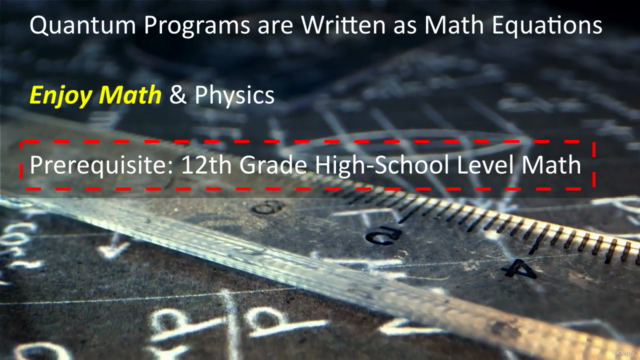
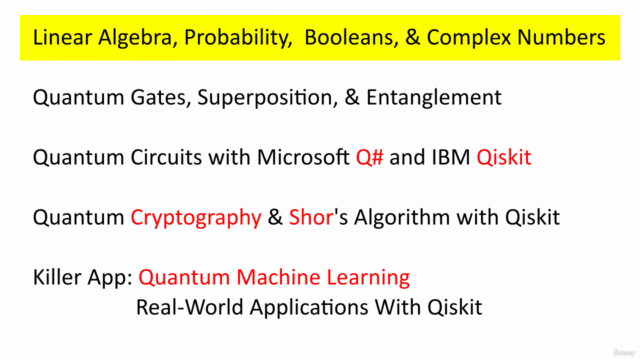
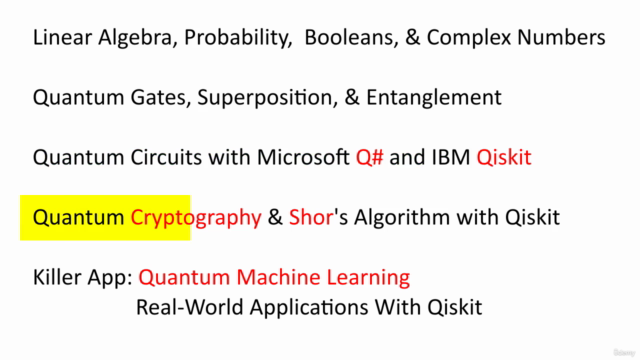
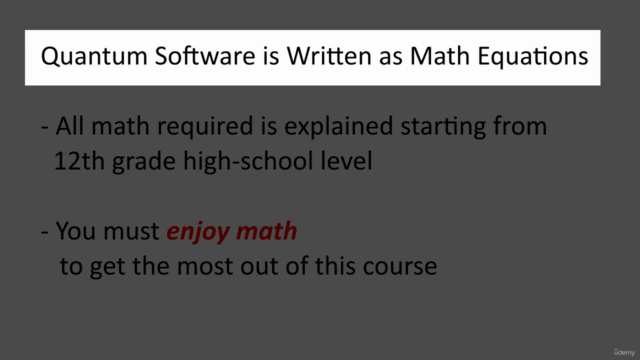
Loading charts...
Comidoc Review
Our Verdict
*QC101 Quantum Computing & Intro to Quantum Machine Learning* offers an expansive look into the world of quantum computing, providing learners with a math-based and accessible approach. Despite minor areas for improvement such as providing more practice opportunities and expanding on machine learning topics, the course delivers value through clear explanations of complex topics backed by hands-on coding tasks using Q# and Qiskit. Ideal candidates include STEM professionals looking to dive into quantum computing or expand their knowledge in artificial intelligence & machine learning using a quantum perspective.
What We Liked
- Comprehensive coverage of quantum computing concepts, including cryptography and machine learning
- Instructor explains complex topics in an easy-to-understand manner using analogies and clear examples
- Well-designed course structure with a strong focus on fundamentals makes it accessible for learners at various levels
- Hands-on coding experience using popular quantum programming languages such as Q# and Qiskit
Potential Drawbacks
- Occasional repetition of basic concepts, which might be unnecessary for more experienced learners
- Machine learning portion could be more in-depth, specifically on converting classical to quantum algorithms
- Lack of practice problems and guided exercises for better hands-on experience
- Instructor sometimes assumes certain questions without explicitly addressing them